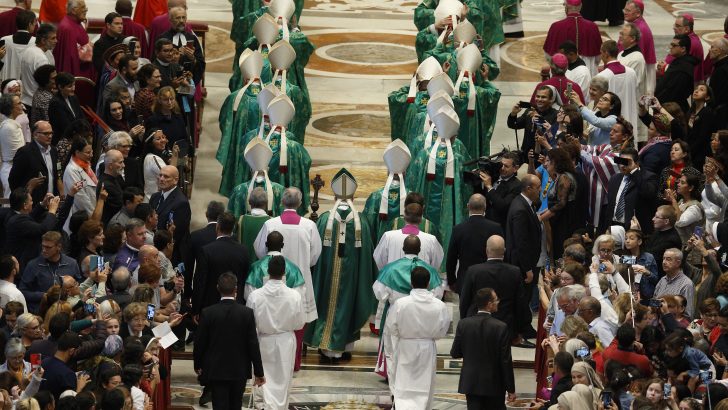The final document of the Amazon synod has caused “mixed” reaction among the faithful, as it calls for the Pope to consider the ordination of married priests and women for diaconal ordination.
Theologian Dr John Murray, based in DCU, said although allowing married priests in isolated South American communities would be “practically useful”, it should be discussed by the universal Church.
“This is a regional synod but it’s making, it seems, decisions, or opening a way which will affect the universal Church, that would concern me, that something would be decided on at a regional synod – for a region – but really behind the scenes what’s been looked for is a change universally,” he said.
The fact it is being discussed at regional level “is sneaky”, he added.
However, Cardinal Baldisseri, secretary general of the Synod of Bishops, said on October 7 that it is still a synod that interests the universal Church and that is why it included heads of Vatican offices and representative bishops from around the world.
Issues
The 33-page document was approved on Saturday, and is the result of a three-week meeting in Rome. The synod’s 181 voting members, together with representatives from indigenous communities, religious orders, lay groups and charities, discussed a range of issues concerning the region, spread across nine countries.
One of the most controversial items in the document is the paragraph dealing with viri probati, or proven married men, who could be considered for ordination in the face of acute shortages of priests in many parts of the region.
The document proposes “to establish criteria and dispositions on the part of the competent authority…to ordain as priest suitable and esteemed men of the community, who have had a fruitful permanent diaconate and receive an adequate formation for the priesthood, having a legitimately constituted and stable family, to sustain the life of the Christian community.”


 Chai Brady
Chai Brady Photo: CNS photo/Paul Haring
Photo: CNS photo/Paul Haring 